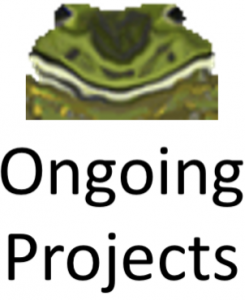
The Conservation and Recovery Research on Oolichan in Haisla Territory Project (CAROOHT)
Oolichan (aka eulachon, candlefish, Thaleichthys pacificus) are a small ocean fish of considerable importance for many North Coast First Nations including the Haisla, providing the first fresh food source after the long winter and a valuable resource for many purposes including medicine. Oolichan stocks are in precarious numbers with many external influences.
The Conservation and Recovery Research on Oolichan (Eulachon, Thaleichthys pacificus) in Haisla Territory Project (CAROOHT) has been developed to address aspects of the fish and fish habitat offsetting plan related to Oolichan for the LNG Plant Processing Area and Fisheries Act Authorization (FAA).
The primary goal of the CAROOHT research program is to advance scientific knowledge of Oolichan presence and distribution in the Traditional Territory of Haisla Nation to allow for more informed fisheries management and conservation decisions (e.g., sustainable harvest levels and listing decisions under Species at Risk Act (SARA)). To achieve this goal, the following research objectives were identified:
- Determine Oolichan presence, distribution and run timing within Kitimat River and other selected rivers entering Douglas Channel and Gardner Canal. For these rivers, map and describe the location and extent of potential and known spawning habitats.
- Identify and evaluate options to support the recovery and long-term management of Oolichan populations in the identified rivers.
- Investigate opportunities and methods for Oolichan propagation and husbandry to support recovery of the Kitimat River population.
Research will be conducted over five years in a collaboration between LNG Canada, Ecofish Research, Haisla Nation, DFO Science and Fisheries Management, as well as UNBC, UVic and SFU. The scientists involved will include Adam Lewis, Morgan Hocking and Alejandro Buren from Ecofish Research, Mark Shrimpton, Heather Bryan, and Eduardo Martins from UNBC, Caren Helbing, Francis Juanes, and Mary Lesperance from UVic, and Jonathan Moore from SFU.
